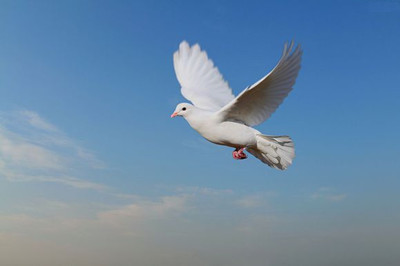This is Scientific American — 60-Second Science. I'm Jason Goldman.
Pigeons. Ever since humans established permanent agricultural settlements, we've lived side-by-side with the birds—or, as some people call them, rats with wings. They walk on our sidewalks, roost on our buildings, and eat our leftovers. But soon pigeons may help us identify risks to public health.
"What we're doing here in my lab is we're assessing how we can use something that's been considered a pest that people actively try to exterminate: the pigeon. How can we use it to better the environment for not only ourselves but for pigeons and for other wildlife?"
U.C. Davis neurobiologist Rebecca Calisi. She looked at lead levels in blood samples from more than 800 injured pigeons brought to a New York City wildlife rehabilitation center. And she compared those to lead levels in blood samples collected from children by the New York City Department of Health in routine screening efforts. The results were published in the journal Chemosphere.

"The neighborhoods where children have high rates of lead toxicity, that's where we saw pigeons with high blood lead levels...so this is a proof of concept kind of project."
Most pigeons will live out their lives within just two kilometers of the place they hatched, so the birds may be able to help researchers develop a detailed map of the risk of toxic lead exposure.
In people, especially kids, lead exposure can affect intelligence, brain development, social skills and memory. Having demonstrated that pigeons can pinpoint areas with high lead contamination, Calisi thinks that the birds can help researchers zero in on other potential environmental hazards as well.
"The thing is, we don't know what to test for right now. We know to test for lead, but what about certain pesticides? Or fire retardants are a big problem these days. We're not sure what the problems are. So instead of drawing a ton of blood from children and putting them through all these tests, why not use an animal that shares our environment, the pigeon, and test for a whole suite of different potential harmful pollutants?"
So rather than dismissing them as rats with wings, why not think of them as...lab rats with wings?
Thanks for listening for Scientific American — 60-Second Science Science. I'm Jason Goldman.













